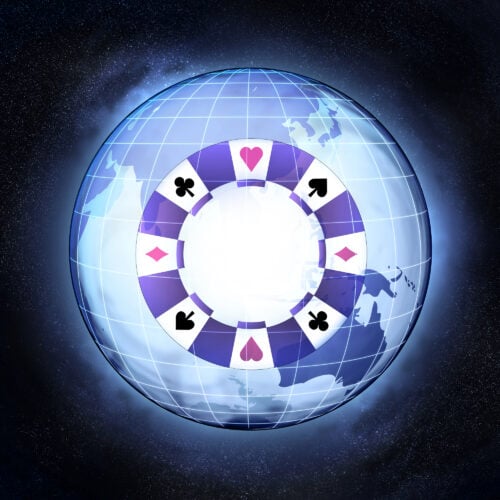Online gambling has changed a lot with the rise of cryptocurrencies. One of the biggest shifts is the growth of No KYC crypto casinos.
These are online casinos that let players deposit, play, and withdraw with little to no identity checks. Many people love the privacy and speed.
But one big question remains: are these casinos legal?
The answer is not simple. The legal status of No KYC casinos depends on where you live and how your country treats both crypto and gambling.
To understand it better, let’s look at what KYC means, why No KYC casinos exist, and how different parts of the world handle them.
Understanding KYC in Online Gambling
KYC stands for “Know Your Customer.” It is a process that banks, casinos, and other financial firms use to confirm a person’s identity.
Governments require this step as part of anti-money laundering (AML) laws. It helps stop fraud, underage gambling, and illegal money flows.
In most regulated online casinos, you must upload ID documents, proof of address, and sometimes even a photo of yourself. The operator keeps these files to show regulators that they are following AML and consumer protection rules.
In contrast, No KYC crypto casinos do not ask for this. You can sign up with only an email address and start gambling right away. This makes them fast and appealing but also controversial.
Why No KYC Casinos Exist
The main reason these casinos exist is demand. Many players prefer privacy. Some people don’t want their gambling linked to their bank accounts. Others dislike slow withdrawal times that come with heavy verification checks.
Crypto allows peer-to-peer payments. That makes it possible for casinos to let players move money without using traditional payment systems. With Bitcoin or USDT, withdrawals can be near instant, which appeals to players who want speed and convenience.
There is also another reason. Many gamblers live in countries where online gambling is restricted or fully banned. For them, offshore No KYC casinos are often the only way to play.
These casinos usually operate from places like Curaçao, Anjouan, or Costa Rica, where licensing rules are lighter. If you want to dive deeper into how these casinos operate, you can check out the review that covers No KYC casinos in detail.
The Legal Grey Zone – A Global Overview
When it comes to legality, No KYC casinos sit in a grey zone. There are two layers to the law. First is the gambling regulation of a player’s country. Second is how the country treats cryptocurrencies.
If both gambling and crypto are regulated, a casino must apply strict KYC rules. If either is banned, then No KYC casinos are considered illegal. In many countries, there is no clear crypto gambling law yet.

Regional Analysis of No KYC Casino Legality
United States
In the United States, online gambling is not controlled by the federal government. Instead, each state sets its own rules. States like New Jersey, Pennsylvania, and Michigan allow online casinos, but they require full KYC checks. That means No KYC casinos cannot operate legally under state licenses.
Crypto gambling itself is not directly regulated at the federal level. This is where offshore platforms step in. Many Americans use No KYC crypto casinos based in foreign jurisdictions. The sites accept players, but they are not authorized by U.S. regulators. This puts them in a grey area.
Payment systems add another layer. Major networks have banned direct casino payments. Visa and Mastercard deposits are restricted for gambling in many states. This is one reason players turn to Bitcoin or Ethereum for faster and private funding.
Europe (EU and UK)
Europe has some of the strictest gambling rules in the world. The EU passed the 5th Anti-Money Laundering Directive (AML5) which requires KYC for all licensed operators. Licensed casinos in Europe must verify players. That makes No KYC casinos illegal in EU markets.
The UK Gambling Commission has even tougher rules. Licensed operators must verify a player’s age and identity before they can even place a bet. Any site without KYC is not allowed to serve UK players legally. Yet, offshore crypto casinos still take bets from British players, but those sites do not fall under local consumer protection.
Asia
Asia shows a mix of strict bans and unregulated spaces.
In China, gambling is banned except for state lotteries. Crypto is also banned. That makes No KYC casinos completely illegal there.
In India, things are less clear. Gambling laws vary by state. Some states ban it outright while others regulate it. The federal government has not issued a firm rule on crypto gambling. This leaves players in a grey zone, where No KYC casinos accept them but without any legal cover.
In the Philippines, licensed online casinos operate under the Philippine Amusement and Gaming Corporation (PAGCOR). These casinos require KYC. However, many offshore operators also target Filipino players without applying these checks.
Canada
Canada regulates online gambling at the provincial level. Ontario is the most advanced, with its own licensing system under iGaming Ontario. Licensed casinos in the province must run strict KYC.
Still, Canadians can access offshore No KYC crypto casinos. These sites are not banned, but they are not regulated either. That means players take on risk if there is a dispute.
Latin America
Latin America is now one of the fastest-growing gambling markets. Brazil, for example, passed laws in 2024 to regulate sports betting and online casinos. The new system is expected to require KYC checks. That means No KYC operators will not be legal under the new framework.
In other countries, like Argentina, Colombia, and Mexico, regulation exists but varies by region. Offshore casinos still hold a big share of the market. Players often use crypto to avoid traditional banking blocks.
Africa
Africa is another mixed region. In South Africa, online gambling is tightly regulated and KYC is required. Only locally licensed sites are legal.
In other parts of Africa, the laws are weak or outdated. Offshore No KYC crypto casinos are popular because they are accessible and offer easy deposits. But since they are not licensed locally, players have little legal protection if something goes wrong.
Risks of Playing at No KYC Casinos
Playing at a No KYC crypto casino can be attractive, but it also comes with risks. The first is legal. Depending on where you live, you could be breaking local laws. Even if the casino is offshore, the act of gambling may not be legal in your jurisdiction.
Another risk is financial. Since there is no regulator watching these casinos, they can freeze funds or refuse payouts. Players often have no legal way to recover their money.
There are also safety risks. Some No KYC casinos do not use strong security measures. This can expose players to scams, phishing attacks, or stolen crypto wallets.
Finally, without KYC, it is easier for underage players or people with gambling problems to access the platforms. Features like self-exclusion and spending limits are often missing.
How to Check If a No KYC Casino Is Safe
Not all No KYC casinos are scams. Some operate with real offshore licenses. Curaçao, Anjouan, and Costa Rica are common licensing hubs. These licenses are not as strict as UK or EU regulators, but they do add some accountability.
Reputation matters a lot. Players should check reviews on forums, community sites, and social platforms before trusting a casino. Casinos with long track records and large player bases tend to be safer.
It is also smart to keep only small balances in a casino wallet. Never store large amounts of Bitcoin or other coins on the platform. Use your personal crypto wallet for savings and move only what you plan to gamble.
Some casinos now offer optional light KYC. This means you can play without checks but must submit ID if you want to withdraw higher amounts. For many players, this balance feels safer.
The Future of No KYC Casinos
The future of No KYC casinos is uncertain. Regulators worldwide are tightening AML and gambling laws. As new frameworks roll out, full anonymity will be harder to find.
At the same time, the demand for private and fast gambling will not go away. Hybrid models may become common. These would allow small withdrawals without KYC but require checks for larger amounts.
There is also a shift toward decentralized gambling. Blockchain-based dApps can run casino games without a central operator. These platforms might offer privacy by design, but they will likely face the same regulatory challenges in the long run.
The balance between privacy and compliance will define the market in the coming years.
Conclusion
No KYC crypto casinos attract players with speed, privacy, and ease of use. But their legal status depends on where you live. In regulated markets like the EU, UK, and certain U.S. states, they are not legal. In other regions, they operate in grey zones.
Players should weigh the benefits against the risks. Offshore casinos can be fun, but without legal protection, the risks are real. The safest path is to know your local laws and pick a casino that has at least some licensing and reputation.
FAQs
Are No KYC crypto casinos completely legal?
Not everywhere. They are illegal in strict markets like the UK, EU, and U.S. states with regulated gambling. In other places, they operate in a grey zone.
Can I get in trouble for playing at a No KYC casino?
Yes, in some countries. While many players gamble offshore, it could still violate local laws.
Which countries allow No KYC crypto casinos?
Few countries officially allow them. Most operate offshore in regions with lighter licensing rules.
Why do some players prefer No KYC casinos?
They want privacy, faster withdrawals, and fewer document hassles.
How can I tell if a No KYC casino is safe?
Check for a license, read reviews, and avoid keeping large sums on the platform.


 Tags:
Tags:










